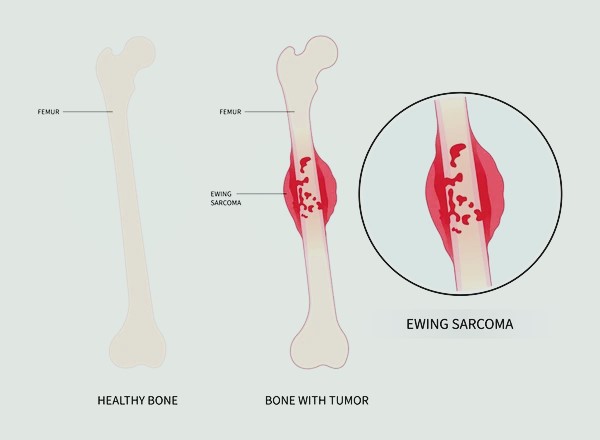Bone Cancer: Causes, Symptoms, Treatment, and Precautions
Learn about Bone Cancer: its causes, symptoms, treatment, and precautions. Get essential insights to understand and manage this condition in our comprehensive guide.


Bone cancer is a rare type of cancer that primarily affects the bones. It occurs when there is an abnormal growth of cells in the bone tissue, leading to the formation of a tumor. This tumor can be either benign (non-cancerous) or malignant (cancerous). Malignant bone tumors have the potential to spread to other parts of the body, making early detection and treatment crucial.
Causes of Bone Cancer
The exact cause of bone cancer is still unknown. However, certain factors may increase the risk of developing this condition:
Genetic predisposition: In some cases, bone cancer can be hereditary.
Prior radiation therapy: Individuals who have undergone radiation treatment for other types of cancer may have an increased risk of developing bone cancer.
Pagets disease: This bone disorder can increase the risk of bone cancer.
Exposure to certain chemicals: Prolonged exposure to certain chemicals, such as vinyl chloride and arsenic, may increase the risk of bone cancer.
Symptoms of Bone Cancer
The symptoms of bone cancer can vary depending on the location and size of the tumor. Common signs and symptoms include:
Persistent bone pain
Swelling and tenderness near the affected area
Weakened bones, leading to fractures
Unintended weight loss
Fatigue and general weakness
If you experience any of these symptoms, it is important to consult a healthcare professional for a proper diagnosis.
Treatment for Bone Cancer
The treatment approach for bone cancer depends on various factors, including the type, stage, and location of the tumor. Common treatment options include:
Surgery: The surgical removal of the tumor is often the primary treatment for bone cancer. In some cases, amputation may be necessary.
Chemotherapy: This treatment involves the use of drugs to kill cancer cells or prevent their growth.
Radiation therapy: High-energy X-rays or other forms of radiation are used to destroy cancer cells.
Targeted therapy: This treatment uses drugs that specifically target cancer cells, minimizing damage to healthy cells.
The choice of treatment will be determined by a multidisciplinary team of healthcare professionals, including oncologists, surgeons, and radiation therapists. They will consider factors such as the stage of cancer, overall health, and individual preferences.
Precautions for Bone Cancer
While it may not be possible to prevent bone cancer entirely, there are certain precautions that can help reduce the risk:
Maintain a healthy lifestyle: Regular exercise, a balanced diet, and avoiding tobacco and excessive alcohol consumption can contribute to overall health and reduce the risk of cancer.
Protect against radiation exposure: If you work in an environment where you are exposed to radiation, follow safety protocols and wear protective gear.
Be aware of your family history: If there is a history of bone cancer in your family, inform your healthcare provider so they can monitor your health more closely.
Seek medical attention for persistent symptoms: If you experience persistent bone pain or other concerning symptoms, consult a healthcare professional for a proper evaluation.
It is important to remember that bone cancer is rare, and experiencing any of the symptoms mentioned does not necessarily mean you have bone cancer. However, it is always better to be safe and seek medical advice for proper evaluation and diagnosis.
